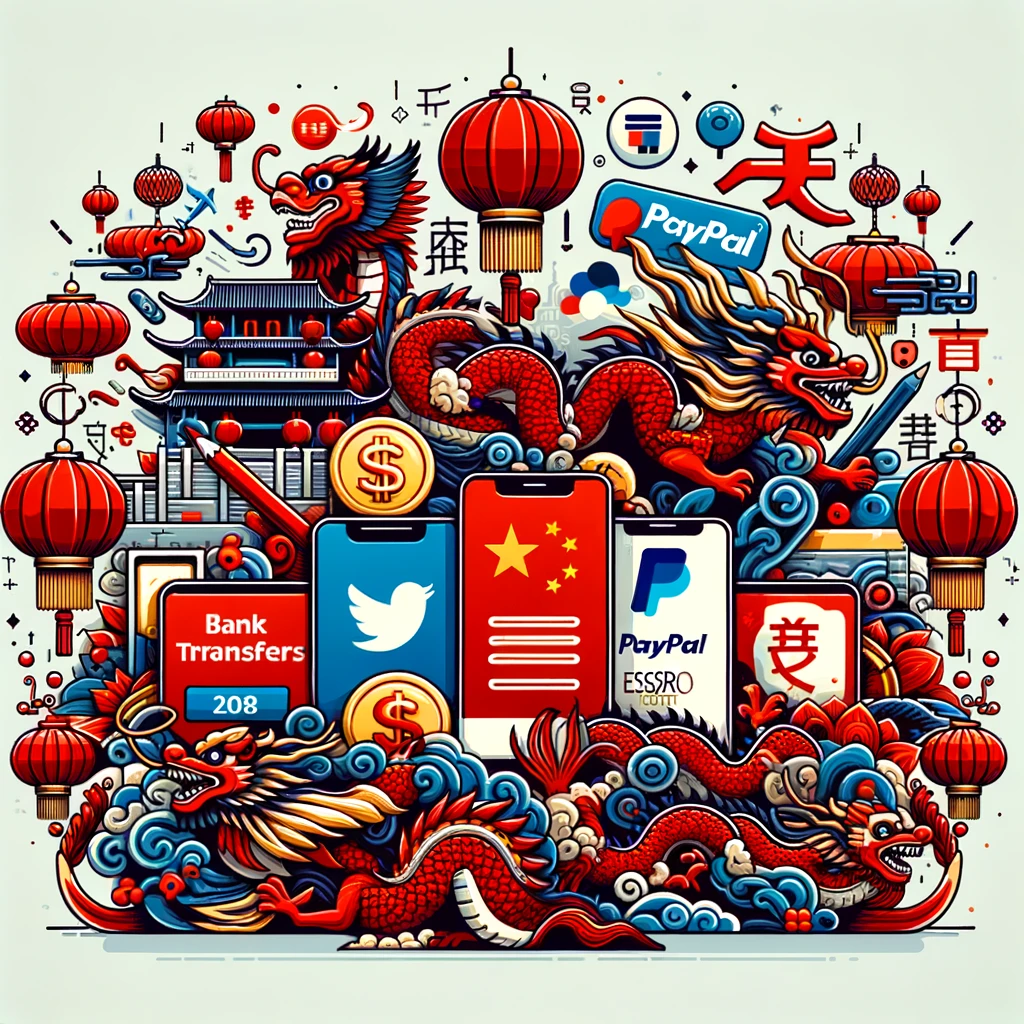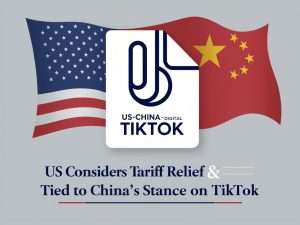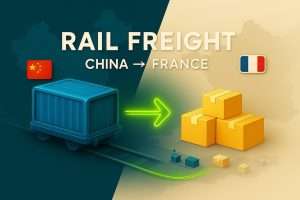Are you perplexed by the myriad of payment methods available when dealing with Chinese suppliers? You’re not alone. The landscape of international trade with China is riddled with complexities, making it essential to understand the nuances of each payment option.
In this section, we delve into the diverse payment methods used in trade with Chinese suppliers, shedding light on how they impact business transactions. From traditional bank transfers to cutting-edge digital payment platforms, each method carries its own set of advantages, challenges, and risks.
We’ll also explore how regulatory landscapes and cultural practices in China influence these payment methods. Whether you’re a seasoned importer or new to the game, understanding these payment options is crucial for a smooth and successful trade experience with Chinese suppliers.
Stay tuned as we uncover the key payment methods, helping you make informed decisions in your business dealings with one of the world’s largest economies.
Telegraphic Transfer (TT)/International Wire Transfer

The Go-To Choice for Cross-Border Trade
Why is Telegraphic Transfer (TT) a preferred choice for many in international trade with China? It’s about reliability and familiarity. TT, or International Wire Transfer, is widely recognized for its effectiveness in handling low to medium-value transactions.
Weighing the Pros and Cons
Pros of TT/Wire Transfers
- Widely Accepted: Globally recognized, ensuring ease of use.
- Speed: Typically processes within 1-3 business days.
- Security: Provides a reliable and secure means of transferring funds.
Cons of TT/Wire Transfers
- Costs: Can be expensive for small transactions due to fixed fees.
- Irrevocability: Once sent, difficult to recall, posing risks in disputes.
- Currency Fluctuations: Exchange rates can affect the final amount received by the supplier.
Currency Exchange Tips
To mitigate risks, consider using currency hedging tools or consulting with a forex expert. Also, tracking currency trends can help in timing your transfer to maximize value.
Understanding these aspects can help businesses leverage TTs effectively for financial transactions with Chinese suppliers.
Letter of Credit (LC): Navigating High-Value Transactions
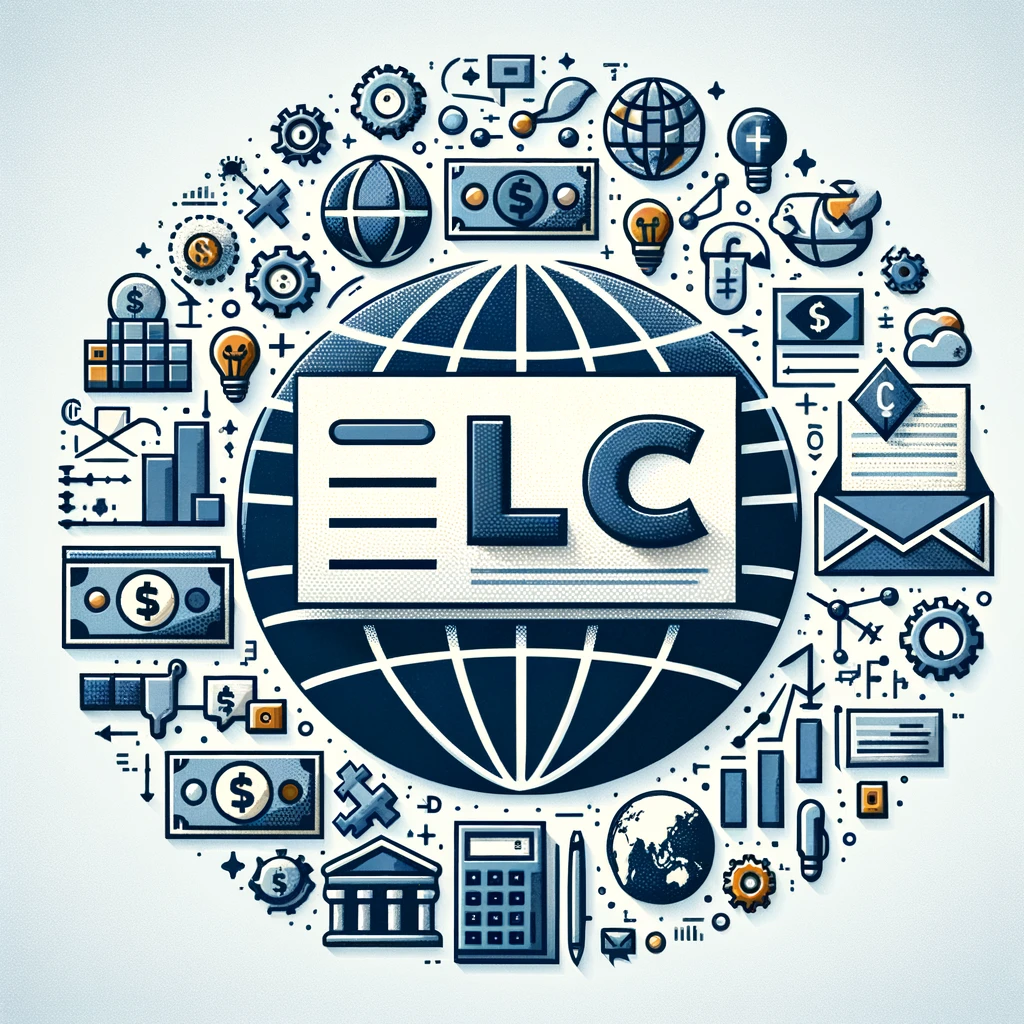
The Secure Route for Large Transactions
Why are Letters of Credit (LC) crucial for deals over $50,000 in international trade with China? LCs stand out for their security and trust in large transactions, ensuring that both suppliers and buyers are protected.
Understanding the Benefits and Challenges
Advantages of Using LCs
- Security: Guarantees payment upon fulfilling contract terms.
- Trust: Builds confidence between parties in high-value deals.
- Flexibility: Offers tailored terms to suit specific trade agreements.
Drawbacks of LCs
- Complex Procedures: Involves intricate paperwork and legal processes.
- High Costs: Associated fees can be substantial, affecting overall transaction expenses.
- Bank Dependencies: Relies heavily on banks, making the process slower and sometimes bureaucratic.
Practical Example
Consider a scenario where a buyer needs to import specialized machinery worth $100,000. Using an LC, the buyer ensures that payment is only made once the supplier ships the machinery as per agreed specifications. However, the buyer must navigate through the extensive documentation and absorb the bank fees associated with issuing the LC.
By understanding the pros and cons, businesses can decide whether an LC is the right fit for their high-value transactions with Chinese suppliers.
Bank Transfers via SWIFT: A Reliable, Yet Costly Option
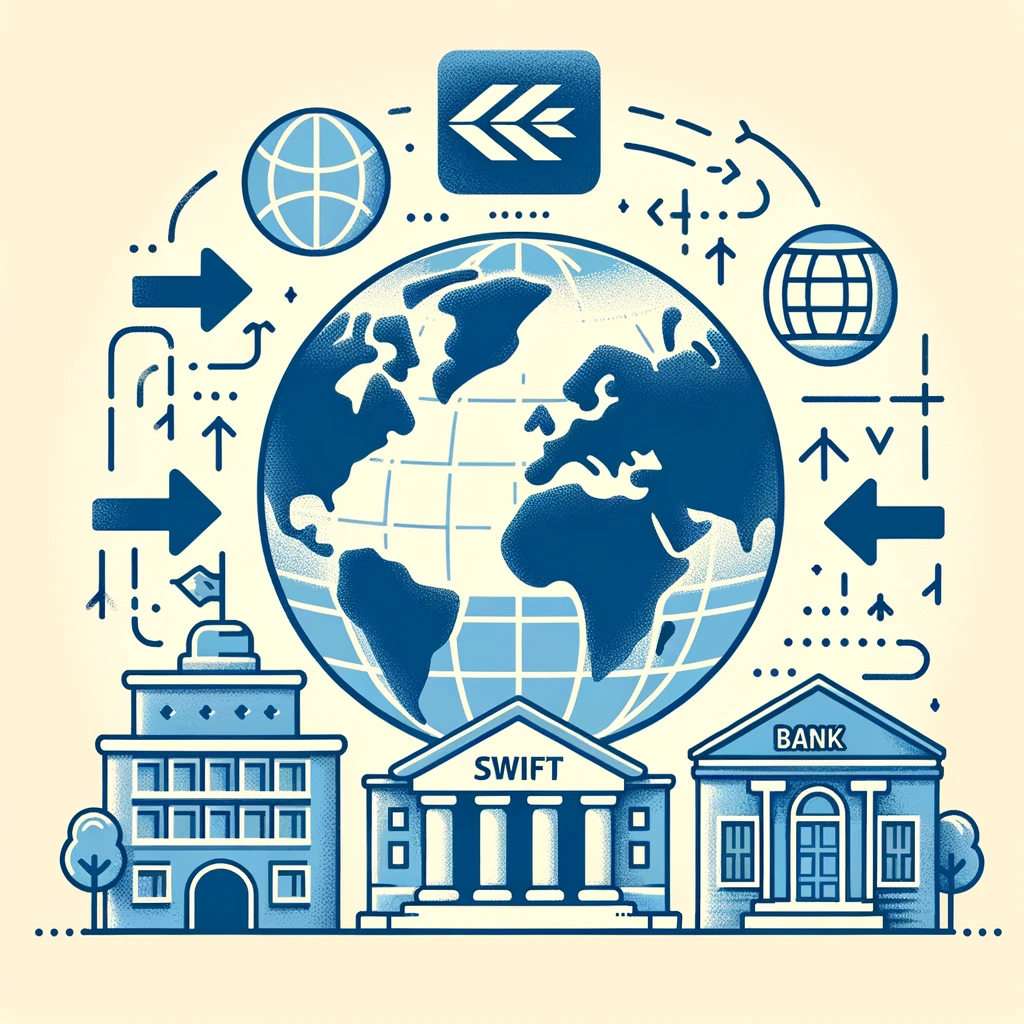
The Standard in International Payments
How do SWIFT bank transfers stand as a go-to method for settling international payments with Chinese suppliers? Known for their reliability, SWIFT transfers are a staple in global commerce, ensuring secure and efficient financial transactions.
Balancing Reliability with Costs
Advantages of SWIFT Transfers
- Global Acceptance: Recognized and used worldwide for international trade.
- Security: High level of safety in transaction processing.
- Speed: Faster than many traditional international payment methods.
Disadvantages of SWIFT Transfers
- High Fees: Can be costly due to bank charges and intermediary fees.
- Currency Exchange Costs: Exchange rates may add additional expenses.
- Complexity: Involves navigating through various banking procedures and requirements.
Real-World Scenario
Imagine a business needing to pay a Chinese supplier $20,000 for a shipment of electronics. A SWIFT transfer ensures that the payment is secure and swift. However, the business must account for a potential fee of, say, $100-$200, and any currency conversion losses, which can impact the total cost effectiveness of the transaction.
In summary, while SWIFT transfers offer reliability and speed, businesses must weigh these benefits against the potential high costs involved.
Alibaba Trade Assurance: Secure Transactions with Limitations

Ensuring Safety in E-Commerce
Wondering how Alibaba Trade Assurance boosts buyer confidence in transactions with Chinese suppliers? This service on the Alibaba platform offers a layer of protection, safeguarding international buyers from common risks.
Navigating the Benefits and Constraints
Advantages of Alibaba Trade Assurance
- Payment Security: Ensures that payments are released to suppliers only after buyer’s confirmation of satisfactory product receipt.
- Quality Assurance: Provides recourse in cases of quality discrepancies.
- Timely Delivery: Protects buyers against delayed shipments.
Limitations of the Service
- Platform Restriction: Only available for transactions conducted on Alibaba.
- Limited Dispute Resolution: Resolving disputes can be lengthy and outcomes aren’t guaranteed.
- Supplier Constraints: Not all suppliers participate in the Trade Assurance program.
Example in Practice
Consider a business ordering $5,000 worth of goods via Alibaba. Trade Assurance offers peace of mind that their payment is secure until they confirm the products meet their standards. However, should a dispute arise, the resolution process may be complex, and the business is limited to seeking redress within Alibaba’s system.
Trade Assurance offers a significant safety net, but it’s vital for buyers to understand its limitations within the Alibaba ecosystem.
PayPal: A Convenient Yet Costly Option for Small Transactions

The Rising Popularity in Small-Scale Trade
Is PayPal becoming a game-changer for small-scale transactions with Chinese suppliers? Indeed, its increasing acceptance has revolutionized the way small quantities and samples are paid for, offering a blend of convenience and speed.
Assessing the Pros and Cons
Benefits of Using PayPal
- Ease of Use: Known for its user-friendly interface.
- Quick Transactions: Ideal for rapid processing of small orders.
- Buyer Protection: Offers some level of security in transactions.
Downsides of PayPal
- High Fees: Charges can significantly increase the total cost, especially for larger amounts.
- Supplier Reluctance: Some suppliers might not accept PayPal due to its fees or withdrawal restrictions.
- Limited Protection: Certain transactions might not be fully covered under PayPal’s buyer protection.
Practical Example
Consider purchasing a batch of samples worth $500. PayPal ensures a quick and secure transaction. However, the buyer might have to bear additional fees of around 3-5%, which the supplier might add to the invoice due to PayPal’s withdrawal fees and restrictions in China.
In essence, PayPal is a viable option for small transactions and samples, but its fees and limitations need careful consideration.
Mobile Payments in China: Dominance of WeChat Pay and Alipay

Revolutionizing Digital Transactions
How have mobile payments like WeChat Pay and Alipay transformed the landscape of digital payments in China? Dominating the market, these platforms have become integral in both personal and business transactions, offering unparalleled convenience and efficiency.
Advantages and Limitations
Pros of Using WeChat Pay and Alipay
- Widespread Acceptance: Extensively used across various sectors in China.
- Efficiency: Facilitate instant payments, streamlining transaction processes.
- Integrated Services: Offer more than just payments, including financial services and social features.
Cons of Mobile Payments
- Bank Account Requirements: Full functionality often necessitates a Chinese bank account.
- Regional Limitations: Primarily focused on the Chinese market, posing challenges for international users.
- Language and Navigation Barriers: Can be difficult to use for non-Chinese speakers without localized interfaces.
Real-World Impact
For instance, a foreign trader looking to make frequent small payments to various suppliers in China would find these platforms incredibly efficient. However, setting up and managing accounts without a local bank account or fluency in Chinese can present significant hurdles.
In summary, while WeChat Pay and Alipay are leading the way in digital payments in China, their full benefits are best leveraged with a local presence and understanding.
Online Escrow: A Secure Choice with Limitations

The Security Blanket in Digital Transactions
Why is Online Escrow becoming a go-to option for secure, small-scale transactions with Chinese suppliers? It offers a layer of security by holding funds until both parties fulfill the agreed-upon conditions, thus minimizing the risk of fraud.
Pros and Cons of Online Escrow
Advantages of Using Escrow
- Enhanced Security: Provides protection against fraud in transactions.
- Mutual Trust: Balances the risk between buyer and seller.
- Controlled Payments: Releases funds only upon fulfilling agreed terms.
Disadvantages of Escrow
- Low International Acceptance: Not widely recognized or used in international settings.
- Additional Costs: Often involves fees that can increase transaction costs.
- Complexity in Dispute Resolution: Resolving disputes through escrow services can be time-consuming and challenging.
In essence, while online escrow services offer enhanced security for small transactions, their international acceptance and ease of use can vary, necessitating a careful evaluation of their suitability for international trade with China.
Sourcing Companies/Agents: Bridging the Gap in Trade Payments

Facilitating Seamless Transactions for Small Businesses
How do sourcing companies and agents simplify payment processes for small-scale importers dealing with Chinese suppliers? By acting as intermediaries, they bridge the gap, especially for those who might find direct transactions daunting or complex.
The Role of Sourcing Agents in Payment Processing
Benefits of Engaging Sourcing Companies/Agents
- Ease of Payment Transactions: Handle payments on behalf of clients, offering simplicity.
- Negotiation Leverage: Use their expertise to secure better payment terms.
- Local Market Knowledge: Understand the nuances of Chinese business practices.
Challenges to Consider
- Service Costs: Their services add an additional layer of expense.
- Reliance on Third Parties: Adds another entity in the business chain, which might affect control over transactions.
- Variability in Service Quality: The efficiency and reliability of agents can vary greatly.
Sourcing companies and agents play a vital role in facilitating payments for small businesses in international trade with China, though it’s important to weigh their benefits against the additional costs and dependency they create.
Western Union: A Convenient Yet Risky Payment Method

Simplifying Payments for Small Transactions
Why do businesses often turn to Western Union for small payments and sample purchases in trade with Chinese suppliers? Known for its simplicity and speed, Western Union is a favored choice for straightforward transactions.
Understanding the Trade-offs
Advantages of Western Union
- Quick Transfer: Ideal for rapid, small-scale financial exchanges.
- Accessibility: Wide global presence, making it easily accessible.
- Convenience: No need for complex banking procedures for small transactions.
Risks and Limitations
- Security Concerns: High risk of fraud, often used by scammers.
- Limited Recourse: Once funds are sent, they are difficult to retrieve.
- High Transaction Costs: Fees can be significant, especially for larger amounts.
Western Union remains a popular option for small transactions with Chinese suppliers, but its use comes with notable risks and costs that necessitate caution and discretion.
International Credit Cards: Niche Acceptance in Tech Industries

Can International Credit Cards Streamline Payments in Technology-Oriented Sectors?
Despite the global prevalence of credit cards, their acceptance as a payment method for Chinese suppliers is notably sector-specific, primarily in technology-oriented industries. This limitation raises several questions about their viability for broader international trade.
Exploring Their Use and Limitations
Advantages of Using International Credit Cards
- Convenience: Simplifies transactions with quick processing.
- Security: Offers protection against fraud and unauthorized transactions.
- Rewards and Benefits: Often comes with rewards or cashback offers.
Challenges of Credit Card Payments
- Limited Acceptance: Primarily favored in tech-related sectors.
- High Processing Fees: Suppliers may pass additional charges onto buyers.
- Risk of Chargebacks: High-risk for suppliers due to potential chargeback issues.
In summary, while international credit cards offer ease and security, their limited acceptance and the associated costs in China’s trade landscape necessitate considering alternative payment methods.
Commercial Drafts: A Double-Edged Sword in Domestic Trade

Are Commercial Drafts the Hidden Gems in Domestic Transactions in China?
Commercial drafts, widely used in domestic trade within China, present a unique blend of flexibility and risk. They are transferable and can be discounted, but come with inherent risks that need careful consideration.
Assessing Their Practicality and Risks
Attributes of Commercial Drafts
- Transferability: Offers the ability to transfer debt obligations between parties.
- Discountability: Can be discounted at banks for early cash access.
- Versatility: Utilized widely in business-to-business transactions.
Risks Involved
- Non-Payment Risk: Potential issues with default on payments.
- Fraud Risk: Vulnerable to fraudulent activities.
- Regulatory Complexity: Governed by specific regulations that can be intricate.
In essence, while commercial drafts offer certain advantages in domestic trade within China, businesses must navigate their risks, particularly non-payment and fraud, with due diligence.
Trade Credit (HAIsure): Balancing Risks in Export Transactions
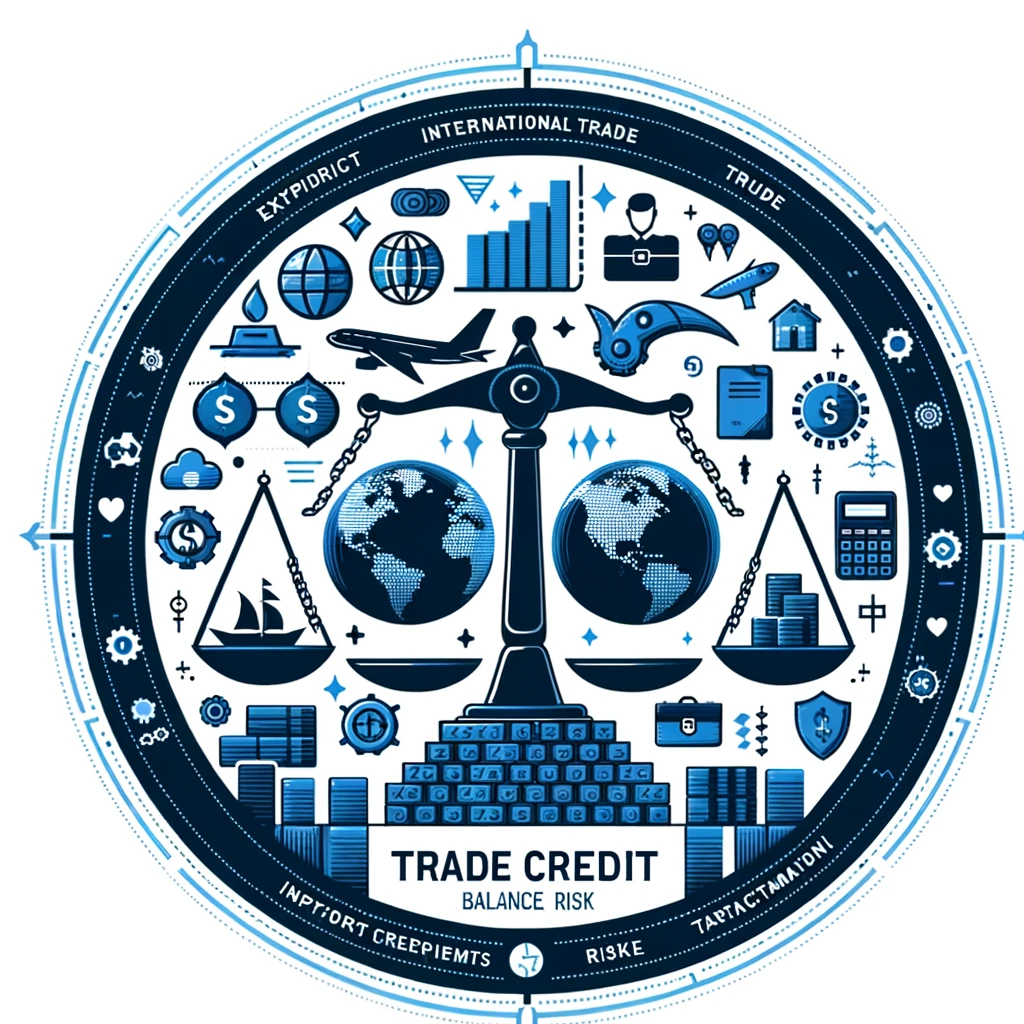
How Does Trade Credit Via HAIsure Enhance Business Prospects with Chinese Exporters?
Trade Credit, particularly through agencies like HAIsure, is pivotal in minimizing risks for exporters in China. It involves a process for importers to obtain a credit limit, which then facilitates smoother and more secure trade dealings.
Understanding Its Dynamics and Implications
Advantages of HAIsure Trade Credit
- Risk Mitigation: Offers insurance against non-payment.
- Enhanced Trade Opportunities: Encourages exporters to engage in transactions with foreign buyers.
- Credit Accessibility: Enables importers to access larger orders without immediate cash outflow.
Process for Importers
- Credit Investigation: Importers undergo a thorough assessment by HAIsure.
- Credit Limit Assignment: Based on this evaluation, a credit limit is set.
- Enhanced Purchasing Power: This limit allows importers to place larger orders under deferred payment terms.
In essence, Trade Credit through HAIsure is a key financial tool in fostering international trade with China, though it requires importers to navigate through a rigorous credit assessment process.
Conclusion: Navigating the Payment Landscape in China Trade
What’s the Best Payment Strategy for Your Business in China?
In conclusion, navigating payment methods in trade with China requires balancing security, cost, and convenience. From traditional Telegraphic Transfers to innovative Mobile Payments like WeChat Pay and Alipay, each method comes with its unique set of advantages and drawbacks.
Final Recommendations
- Assess Your Transaction Size: Choose methods like LCs for large transactions and PayPal or Western Union for smaller ones.
- Consider Your Risk Appetite: Use methods like HAIsure for risk mitigation.
- Stay Informed: Keep abreast of regulatory changes, especially in methods like Cryptocurrency.
Ultimately, the choice depends on your specific business needs and the nature of your transactions with Chinese suppliers.
Frequently Asked Questions
How does trade credit with HAIsure work for importers from China?
Importers undergo a credit assessment by HAIsure. Once approved, they receive a credit limit, which allows them to place orders with deferred payments. This process enhances their purchasing capacity and minimizes risks for exporters.
Can cryptocurrency be used for transactions with Chinese suppliers?
Cryptocurrency transactions are heavily regulated in China. As of recent regulations, using cryptocurrencies for payments or settlements is prohibited, making them impractical for transactions with Chinese suppliers.
What are the benefits and risks of using commercial drafts for payments in China?
Benefits include transferability and discountability for early cash access. Risks involve non-payment and fraud, making it essential to navigate their use cautiously.
How do mobile payments like WeChat Pay and Alipay work for international transactions?
These platforms are dominant in China but require a Chinese bank account for full functionality. They offer convenience and efficiency but have limitations for international users, including potential language and navigation barriers.
What are the considerations for using SWIFT transfers for payments to Chinese suppliers?
SWIFT transfers are secure and widely accepted but can incur high fees and currency exchange costs. Businesses should consider these factors, alongside the speed and reliability that SWIFT offers, when choosing this method for international payments. SWIFT transfers are secure and widely accepted but can incur high fees and currency exchange costs. Businesses should consider these factors, alongside the speed and reliability that SWIFT offers, when choosing this method for international payments.
What are the typical fees associated with using PayPal for payments to Chinese suppliers?
PayPal charges a percentage of the transaction amount as a fee, which can vary but is typically around 3-5%. Additionally, there might be currency conversion fees if the transaction involves different currencies.
How does the use of Alibaba Trade Assurance impact the dispute resolution process?
Alibaba Trade Assurance provides a platform for dispute resolution between buyers and sellers. It offers protection for issues like non-delivery or mismatched product quality but can involve lengthy processing times and no guaranteed favorable outcomes.
Are there specific industries or transactions where Western Union is more commonly used for payments in China?
Western Union is often used for small transactions or sample payments, particularly in industries where immediate or swift payment is preferred, such as in small-scale manufacturing or trading.
What steps should importers take to secure a credit limit with HAIsure for trade credit?
Importers need to undergo a credit investigation by HAIsure, which involves providing financial documentation and other relevant business details. Once the investigation is complete, HAIsure will assign a credit limit based on the importer’s creditworthiness.
How have recent changes in regulations affected the use of cryptocurrencies in trade with China?
Recent regulatory changes in China have significantly restricted the use of cryptocurrencies. Financial institutions are prohibited from processing cryptocurrency transactions, and there are bans on cryptocurrency exchanges and ICOs (Initial Coin Offerings) within China, making it impractical for trade transactions.

